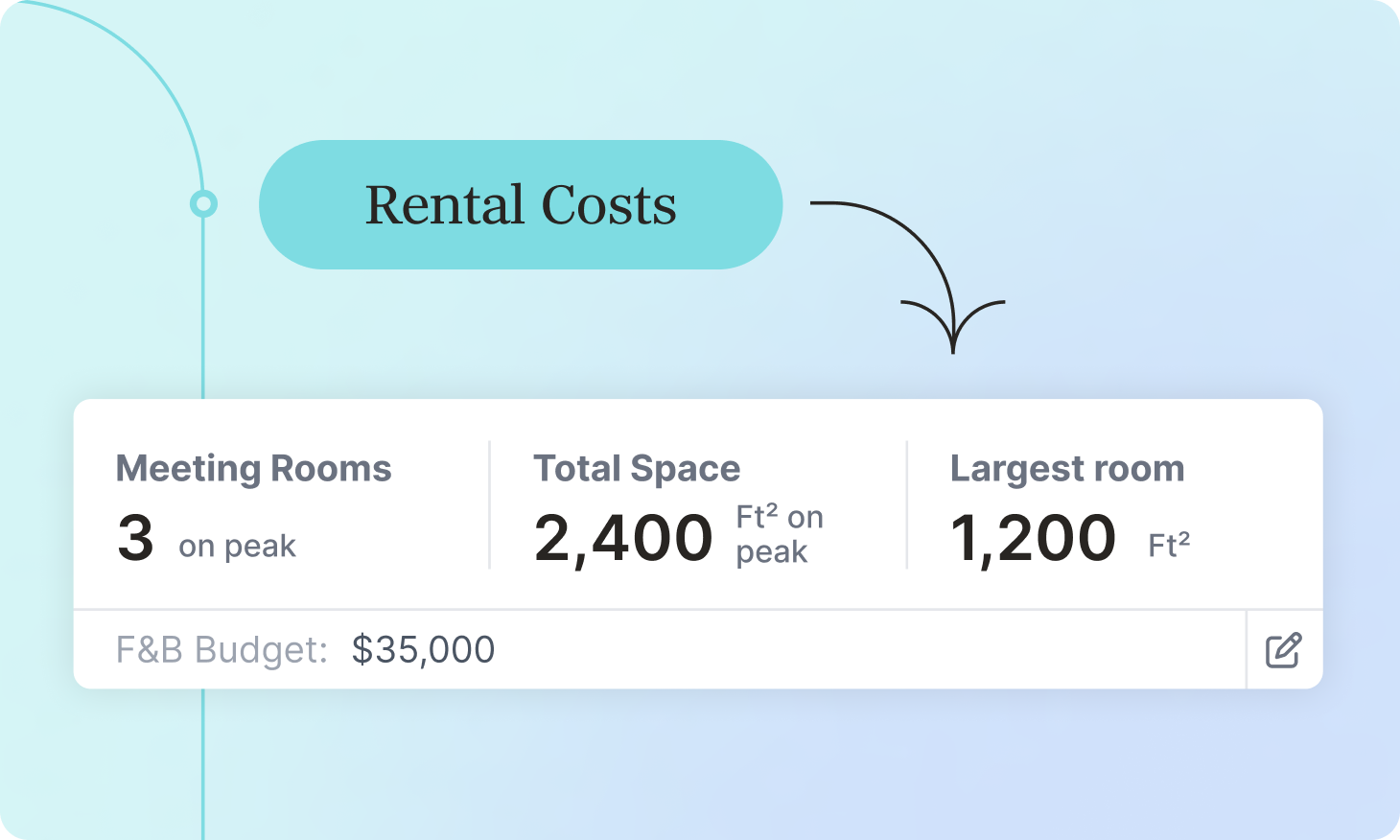

In a recent HopSkip x Legalese with the Ladies webinar, Sean Whalin, Co-founder and CEO of HopSkip, moderated a discussion on the latest changes in hotel fees and contracts affecting the events industry in 2024.
The session featured Kelly Bagnall, Partner at Holland & Knight LLP and a leading authority on hospitality law, along with Barbara Dunn, Partner at Barnes & Thornburg LLP, who shared their expertise on how planners can effectively navigate these challenges and effectively negotiate hotel contracts.
The Challenge of Meeting Room Rental Fees
Meeting planners often face the challenge of managing room rental charges, especially as costs continue to rise. While hotels have increased expenses tied to maintaining these spaces, planners can gain leverage by strategically utilizing a favorable rooms-to-space ratio and thoughtfully coordinating room usage for meals and meetings. This post explores how planners can approach negotiations, what considerations are key, and insights shared by industry experts.
Understanding the Rooms-to-Space Ratio
The rooms-to-space ratio represents the relationship between the number of guest rooms booked and the amount of meeting space requested. Hotels prioritize efficient use of space, especially for groups requiring flexibility.
A higher ratio of guest rooms to meeting space often strengthens a planner’s negotiating position. Planners should assess their needs and convey how their groups space-to-rooms ratio optimizes space usage, which could persuade hotels to provide discounts or offer concessions on rental fees.
Negotiation Tips for Meeting Room Rental Charges
Barbara Dunn advised planners to have candid conversations about budget limits and their space requirements. Here are some key negotiation tips:
1. Leverage Multi-Use Room Configurations
Using the same space for multiple functions, such as meetings and meals, offers hotels the flexibility they seek while reducing setup and operational costs. This approach can lead to favorable terms, especially for groups that maintain a balance between meeting and guest room usage.This approach is advantageous for both parties, as it allows hotels to optimize their resources and planners to achieve cost savings.
As suggested in the webinar, justifying space requests clearly and efficiently can improve a planner’s bargaining position, enabling them to explore sponsorships or reduced fees.
2. Negotiate for a Reduced Set Fee
If full complimentary space isn’t an option, work towards a lower flat fee to accommodate your budget. When complimentary meeting space is not a viable option, it is essential to focus on negotiating a reduced flat fee that aligns with your financial constraints.Begin by clearly outlining your budgetary limitations and the value your event brings to the hotel. Highlight any potential benefits, such as increased guest room bookings or extended stays, that your event might offer. By presenting a well-rounded case, you can work towards securing a more affordable rate that fits within your budget, ensuring that the financial aspect of your event planning is manageable and sustainable.
3. Avoid Over-Extending F&B Minimums
Don’t feel pressured to raise food and beverage (F&B) minimums beyond what is feasible just to offset rental charges.It is crucial not to succumb to the pressure of inflating food and beverage (F&B) minimums beyond what is realistically achievable, merely to counterbalance rental fees. Carefully assess your event’s needs and expected attendance to set a feasible F&B minimum that reflects actual consumption.
By doing so, you maintain control over your budget and avoid unnecessary financial strain. This approach not only helps in managing costs but also strengthens your negotiating position by demonstrating a realistic and well-thought-out plan.
4. Discuss Reassignment Clauses
Ensure that space assignment clauses are reviewed carefully, especially if space may be reassigned without planner consent. Take the time to thoroughly examine and discuss space assignment clauses within your contract, paying particular attention to any provisions that allow for the reassignment of space without your consent.It is vital to ensure that these clauses are clearly defined and mutually agreed upon to prevent any unexpected changes that could disrupt your event planning. By addressing these clauses upfront, you safeguard your interests and maintain control over the logistics of your event, ensuring that the allocated space meets your specific requirements and expectations.
Hotel Expenses and Meeting Room Fees
Although planners often include meeting room fees in their budgets, it’s crucial to recognize the expenses hotels incur to maintain these spaces. As Kelly Bagnall noted, hotels face substantial costs related to utilities, cleaning, maintenance, and repairs. Grasping this viewpoint can help planners better understand the rationale behind certain fee structures.
Balancing F&B Minimums and Negotiation Power
Establishing an F&B minimum that truly reflects anticipated spending is essential. Some groups might opt for lower F&B minimums with the intention of surpassing them, but Kelly Bagnall pointed out that this tactic could weaken a planner’s bargaining position. By committing to a minimum that matches the expected expenditure, planners can show good faith and potentially enhance negotiation results for rental rates and other terms.
Conclusion
Navigating the negotiation of meeting room rental fees is a complex task, particularly as hotels encounter increasing operational expenses. By comprehending the rooms-to-space ratio, employing versatile space usage, and establishing clear budgetary guidelines, planners can strengthen their negotiating leverage.
Effective planning, along with open communication, enables both parties to derive value, ensuring a successful event experience for planners and their participants.
Get Access to the Full Webinar Recording
To learn more about navigating resort fees and other hotel charges, access the full recording below!














